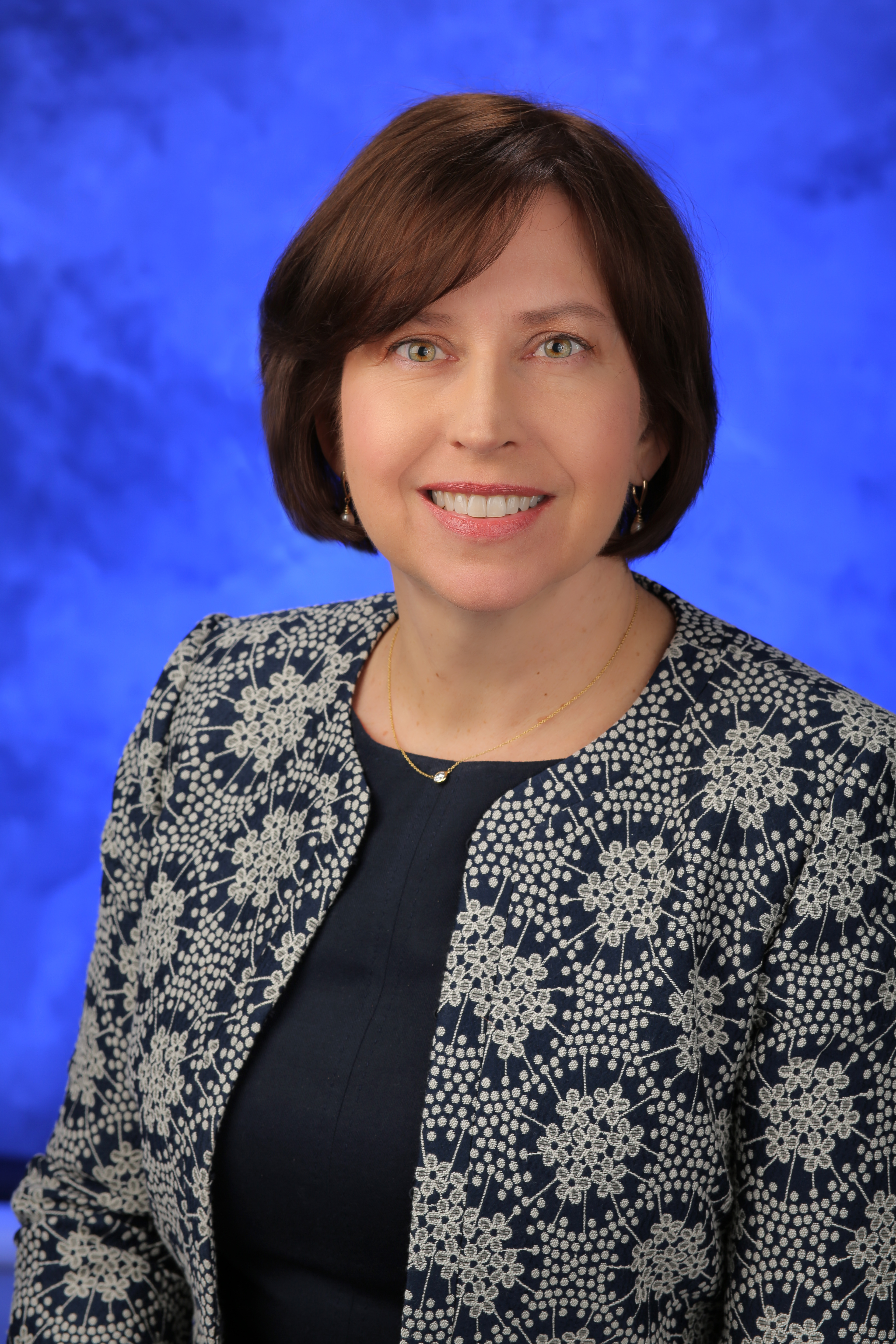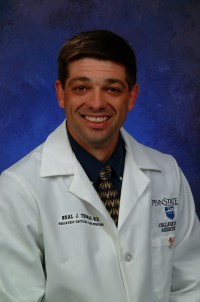Meet Dr. Leslie Parent, Penn State Hershey’s new vice dean for research
With a career in retrovirology research, a passion for education, and a 24-year history at Penn State Hershey, Dr. Leslie Parent brings a strong skillset to her new position as vice dean for research and graduate education.
Parent transitioned to the role in early June from her former position as chief of the Division of Infectious Disease.
“I thought it was a great opportunity to help other people do better research,” Parent said. “That was what really motivated me: the opportunity to enhance the research going on here at the College of Medicine. We already have excellent, successful investigators. We can take something that already has such a strong foundation and look for ways to promote our research, engage more people in our research, and build a better and more complete infrastructure for research.”
Parent started in the Division of Infectious Disease as a fellow, completed a post-doctoral fellowship in retrovirology, and started her own NIH-funded laboratory in 1998. She was named chief of the division in 2007 and was later asked to co-lead the college’s M.D./Ph.D. program, helping train future physician scientists.
Parent believes she brings an optimistic attitude and persistence to the role.
“I like to explore all the possibilities and do our best to achieve the things we set out to do,” she said. “I like to set goals and then gather people around to work as a team to achieve those objectives. I think team work is really important and I hope that I can be someone who can build teams and use a lot of different people’s talents to achieve the things we want to do here.”
One of the things she would like to achieve is to build on the successes of research programs in the Penn State Hershey Cancer Institute, Penn State Hershey Institute for Personalized Medicine, Penn State Hershey Heart and Vascular Institute, and the Penn State Clinical and Translational Science Institute (CTSI).
“The CTSI has been a real driving force in building the infrastructure we need in information technology and computing,” she said. “It has been a catalyst for change by helping organize the research efforts of the university so that faculty have an easier time doing their research. Renewing that grant is a goal, as is investing in our programs we have, and making Penn State a destination for clinical and translational research.”
While funding remains a concern for investigators, Parent still sees opportunities available.
“I think that the U.S. is still interested in innovation, in biomedical research, in new diagnostic tests, in understanding the pathogenesis of disease better to develop treatments,” she said. “So while there is a limitation of funds, I think if you’re doing excellent research you will find a way to get your research funded.”
How researchers across disciplines communicate with each other is more of a challenge.
“Trying to find a common language between investigators from different disciplines can be difficult,” she said. “We’re making great strides in learning how to speak the language – if you’re an engineer talking to a biologist for example. It’s a lot of fun, as well, because you get to see people who haven’t thought about a problem from one perspective then looking at it from a different angle to come up with a novel idea. Sometimes the things that are challenges can become strengths.”
Parent will continue her own research into the basic biology of retroviruses, like HIV.
“Viruses have to replicate within a cellular environment, so they basically have to hijack pathways the cell provides for their own purposes,” she explained. “My lab is very interested in retrovirus-cell interactions. We study the process by which viruses assemble new virus particles. Once they infect a cell, they have to reproduce so they can leave one cell and spread to other cells. We study that entire process of virus assembly.”
Her passion for education and training the next generation of researchers will continue to be a focus as she becomes more involved with graduate education, working with the associate dean for graduate studies.
“Graduate education is an important mission of the College of Medicine,” she said. “I’ve trained a number of graduate students in my laboratory so I’ve seen just what happens to a student over the course of their time here. It’s an amazing transformation because they come in as an excited, energetic recent graduate who doesn’t really know how to apply what they learned in the classroom to science. Then, through a series of work in a laboratory and in the classroom, they learn how to be an independent scientist. To watch that change over time is incredibly rewarding.”
The college offers other graduate programs outside the laboratories, including a recently added one in public health sciences.
“I want to raise the profile of graduate education so more people are aware of the excellent students we have,” she said.
She also will remain involved with the M.D./Ph.D. program. This 20-year-old program allows a student to integrate research and medical education with graduate education over eight years. Students begin with medical school, transition into graduate school, then return to medical school.
“During the process, we are always integrating graduate education with medical education so the student comes out as a balanced individual who has an appreciation for both aspects of patient care,” Parent said. “They can recognize a problem that needs to be addressed, and then they have the tools to look at the question. It provides someone with the education to go from bench to bedside and then from bedside back to bench and try to understand the underpinnings of disease so they can try to make a difference.”
Parent is taking on the role during a time of transition in both health care and Penn State Hershey. Penn State Hershey recently announced the creation of Penn State Health, a health system that includes St. Joseph Regional Health Network and will include the Milton S. Hershey Medical Center and other health care organizations.
The creation of the health system will allow the continued success of the College of Medicine during a transitional time.
“Health care in general is undergoing a lot of change across the nation,” Parent said. “We want to be a part of that and want to be at the forefront of change. It’s an opportunity to broaden our horizons. We don’t know what the future will look like in a year or two, but we believe it will provide more opportunities to integrate patient care and research. That is what we are all about.”
If you're having trouble accessing this content, or would like it in another format, please email the Penn State College of Medicine web department.


